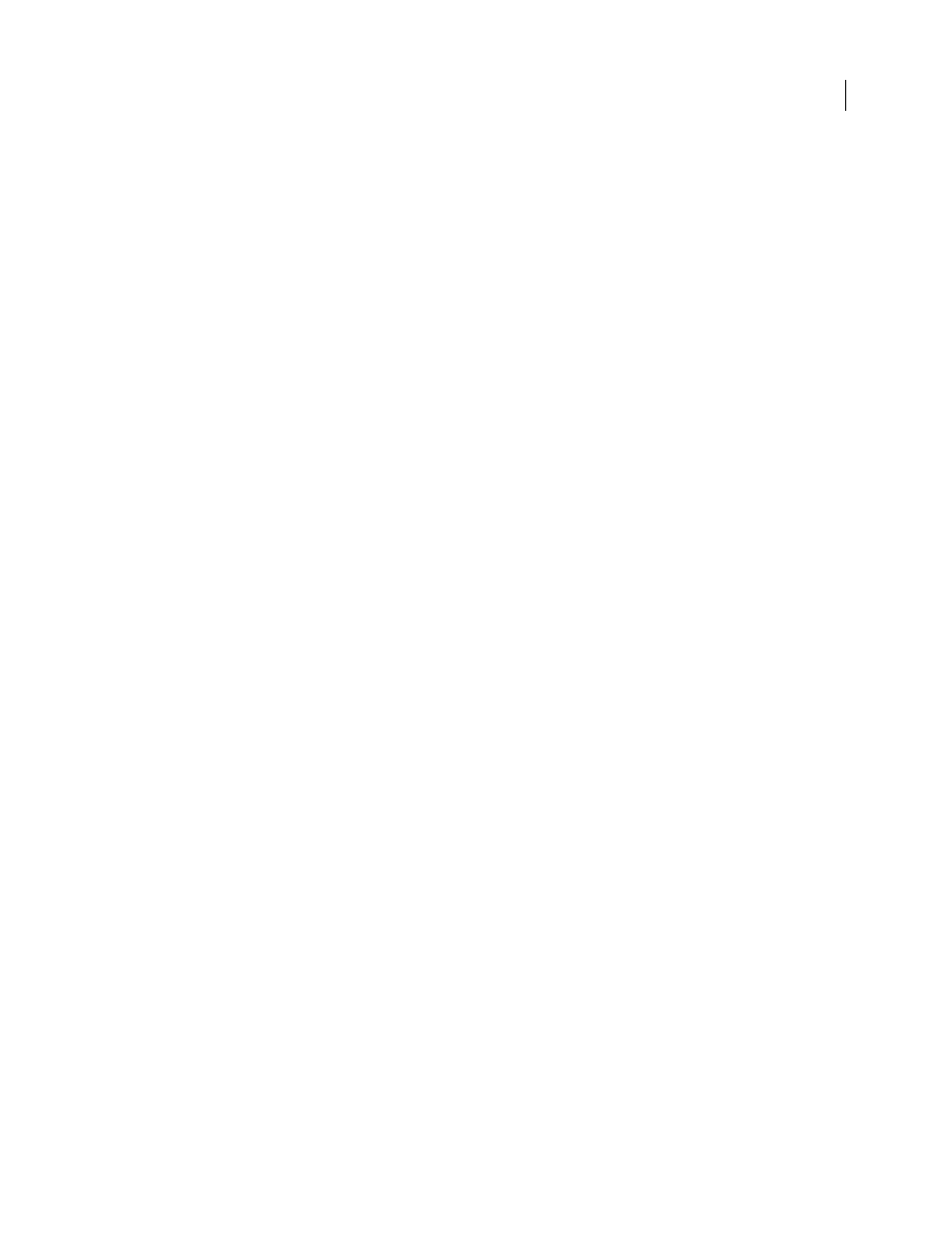Layer style options – Adobe Photoshop CS3 User Manual
Page 307

PHOTOSHOP CS3
User Guide
300
Layer style options
Altitude
For the Bevel and Emboss effect, sets the height of the light source. A setting of 0 is equivalent to ground
level, 90 is directly above the layer.
Angle
Determines the lighting angle at which the effect is applied to the layer. You can drag in the document window
to adjust the angle of a Drop Shadow, Inner Shadow, or Satin effect.
Anti-alias
Blends the edge pixels of a contour or gloss contour. This option is most useful on shadows with a small
size and complicated contour.
Blend Mode
Determines how the layer style blends with the underlying layers, which may or may not include the
active layer. For example, an inner shadow blends with the active layer because the effect is drawn on top of that layer,
but a drop shadow blends only with the layers beneath the active layer. In most cases, the default mode for each effect
produces the best results. See “List of blending modes” on page 344.
Choke
Shrinks the boundaries of the matte of an Inner Shadow or Inner Glow prior to blurring.
Color
Specifies the color of a shadow, glow, or highlight. You can click the color box and choose a color.
Contour
With solid-color glows, Contour allows you to create rings of transparency. With gradient-filled glows,
Contour allows you to create variations in the repetition of the gradient color and opacity. In beveling and
embossing, Contour allows you to sculpt the ridges, valleys, and bumps that are shaded in the embossing process.
With shadows, Contour allows you to specify the fade. For more information, see “Modify layer effects with
contours” on page 301.
Distance
Specifies the offset distance for a shadow or satin effect. You can drag in the document window to adjust
the offset distance.
Depth
Specifies the depth of a bevel. It also specifies the depth of a pattern.
Use Global Light
This setting allows you to set one “master” lighting angle that is then available in all the layer effects
that use shading: Drop Shadow, Inner Shadow, and Bevel and Emboss. In any of these effects, if Use Global Light is
selected and you set a lighting angle, that angle becomes the global lighting angle. Any other effect that has Use
Global Light selected automatically inherits the same angle setting. If Use Global Light is deselected, the lighting
angle you set is “local” and applies only to that effect. You can also set the global lighting angle by choosing Layer
Style > Global Light.
Gloss Contour
Creates a glossy, metallic appearance. Gloss Contour is applied after shading a bevel or emboss.
Gradient
Specifies the gradient of a layer effect. Click the gradient to display the Gradient Editor, or click the
inverted arrow and choose a gradient from the pop-up palette. You can edit a gradient or create a new gradient using
the Gradient Editor. You can edit the color or opacity in the Gradient Overlay palette the same way you edit them in
the Gradient Editor. For some effects, you can specify additional gradient options. Reverse flips the orientation of
the gradient, Align With Layer uses the bounding box of the layer to calculate the gradient fill, and Scale scales the
application of the gradient. You can also move the center of the gradient by clicking and dragging in the image
window. Style specifies the shape of the gradient.
Highlight or Shadow Mode
Specifies the blending mode of a bevel or emboss highlight or shadow.
Jitter
Varies the application of a gradient’s color and opacity.
Layer Knocks Out Drop Shadow
Controls the drop shadow’s visibility in a semitransparent layer.
Noise
Specifies the number of random elements in the opacity of a glow or shadow. Enter a value or drag the slider.
Opacity
Sets the opacity of the layer effect. Enter a value or drag the slider.
